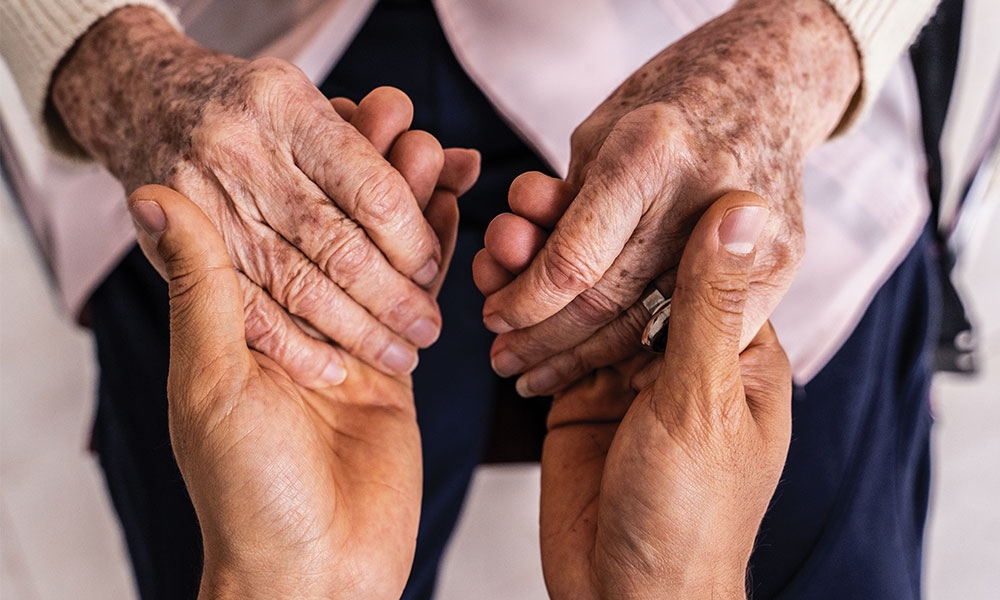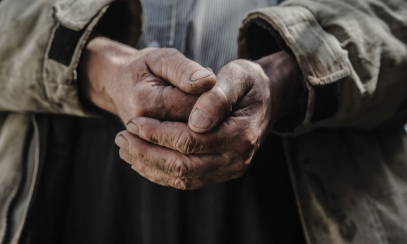
Themes of Catholic Social Teaching
Life and Dignity of the Human Person
Life and Dignity of the Human Person
According to the United States Conference of Catholic Bishops (USCCB), Catholic Social Teaching (CST) provides a lens through which we can understand and address social issues. The idea, of course, is that CST will help individuals and society apply the Gospel message to social, economic and political life to build a more just society for all.
According to the United States Conference of Catholic Bishops (USCCB), Catholic Social Teaching (CST) provides a lens through which we can understand and address social issues. The idea, of course, is that CST will help individuals and society apply the Gospel message to social, economic and political life to build a more just society for all.
Although the Catholic Church has a long history of weighing in on social issues, CST as a distinct form of Church teaching is generally considered to have emerged in 1891. This was the year Pope Leo XIII published his encyclical Rerum Novarum to address the oppression of the working class by the Industrial Revolution and the rise of socialism. Since then, numerous papal and Vatican documents have enriched CST.
The USCCB describes Catholic Social Teaching as “a central and essential element of our faith.” CST has its roots in the Hebrew prophets’ announcement of God’s love for the poor and call to the people to God’s covenant. Further, CST finds its foundation in the life and words of Jesus Christ.
However, CST also flows naturally from God’s self-revelation to us. As St. John Paul II wrote in his apostolic exhortation, Ecclesia in America, our God is a Trinitarian communion. As we are made in God’s image, we share this communal, social nature and are called to build relationships of love and justice through the power of the Holy Spirit.
The fundamental principle
Catholic Social Teaching is centered on seven main principles. The first of these is the “Life and Dignity of the Human Person.” This principle declares that every individual has inherent worth and that every life is sacred. CST (not to mention all human rights) is founded on this principle. The USCCB goes so far as to say that CST is “inseparable from our understanding of human life and human dignity.”
This respect for the life and dignity of the human person, in turn, is grounded in the Church’s belief that every human being is created in the image of God and redeemed by Jesus Christ. Because of this, the Church teaches that every person, from the moment of conception to natural death, has inherent dignity and, therefore, has a right to life. This dignity comes from God alone and is not based on any human quality, characteristic or accomplishment.
Communion and stewardship
More than 20 years ago, the International Theological Commission, in its document, Communion and Stewardship: The Human Person Created in the Image of God, identified two critical points that come from a deep understanding of human persons being created in the image of God.
First, because we are created freely and out of love by God to share in eternal life with God, our “radical likeness” to the triune God forms the basis for our relatedness to this Trinitarian communion for which we are created. Similarly, as persons made in the image of God, we are also oriented toward communion with one another. We are relational beings built for communion.
Second, the commission pointed out that because we are created in the image of God to share in the communion of Trinitarian love, we also enjoy the privilege of “sharing in the divine governance of visible creation.” (57) This means we are also responsible and accountable for how we exercise this privilege.
Consequently, the CST principle of the “Life and Dignity of the Human Person” calls us into ever-deeper relationship with God, neighbor, self and creation. It offers us the standard against which we are called to discern the validity of all social, economic, political and technological programs and initiatives.
Does a given program or initiative:
- honor or detract from the dignity of the human person, every human person?
- value or devalue human life?
- lead to a fuller human life or a more restricted, impoverished human life?
- promote greater communion or greater division?
- represent the responsible use of power or will it lead to the further degradation of people and creation?
Who Said That…?
“Fundamental rights are neither created by the lawmaker nor granted to the citizen. The value of human dignity … takes precedence over all political decision-making.”
a. St. Augustine
b. St. Teresa of Calcutta
c. Pope Benedict XVI
d. St. John Paul II
Answer: c - Pope Benedict XVI in his address to the German Bundestag (Parliament) on September 22, 2011.
“Our duty is to continue to insist … that the human person and human dignity are not simply catchwords, but pillars for creating shared rules and structures”.
a. Pope Francis
b. Pope John Paul I
c. St. Elizabeth Ann Seton
d. St. Teresa Benedicta of the Cross
Answer: a – Pope Francis in his address to participants in the 38th Conference of the Food and Agriculture Organization of the United Nations (FAO) on June 20, 2013.
Doug Culp is the chancellor for the Catholic Diocese of Lexington.



